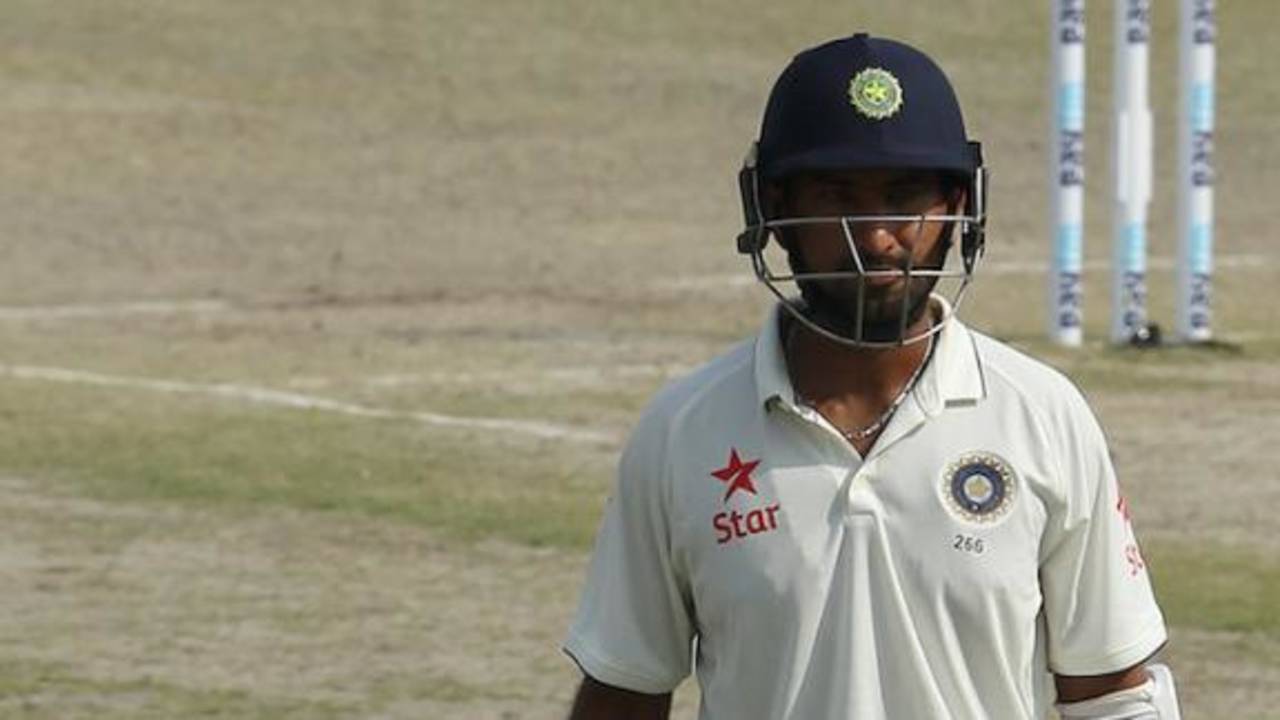Give third umpire power to intervene even without referral - Tendulkar
Sachin Tendulkar has urged all three match umpires to work together and has suggested a third umpire should intervene to reverse incorrect decisions even when there is no referral
ESPNcricinfo staff
15-Nov-2016
Sachin Tendulkar has called for greater authority to be given to the third umpire to intervene and reverse incorrect decisions even when the player has not opted to refer it under the Decision Review System. He said the idea of the DRS was to ensure correct decisions were made consistently, and suggested the three umpires work together towards that end.
"All three umpires should work together as a team and if the third umpire spots something, he should be in a position to tell the on-field umpire, 'I feel this is not out' or vice versa," Tendulkar was quoted as saying by Mid Day. "You can overturn that decision. It's all about getting correct decisions, so you must go all the way to get it right."
India had mixed fortunes with DRS in the first Test in Rajkot with Cheteshwar Pujara's dismissal in the second innings coming under the spotlight. Pujara was adjudged lbw on 18, but he didn't opt to review the decision even as replays revealed Adil Rashid's delivery had pitched outside leg stump before hitting the batsman's leg. M Vijay, at the other end, also seemed to concur with the umpire's decision, and didn't press Pujara to go for a review.

Explaining India's initial reluctance to DRS, Sachin Tendulkar said they were not convinced of the technology•ESPNcricinfo Ltd
Incidentally, Pujara was initially given out lbw for 86 in the first innings when Zafar Ansari struck him on the back leg. Pujara consulted with Vijay, who was the non-striker on that occasion as well, and referred the decision to Rod Tucker, the third umpire. Tucker overturned the decision after replays showed the ball to be going over the stumps.
After the second innings, Kohli said the non-striker must stay closer to the stumps and remain more pro-active in helping his partner with DRS referrals, but Tendulkar felt the onus was on the umpires to make the right call.
"In spite of Pujara being not out and DRS being there, he still ended up losing his wicket. Should the third umpire have the authority to intervene and correct the decision? I feel, yes," he said. "See, the batsman at the other end is thinking about his own batting. He is planning how he is going to tackle the bowler. That period [at the non-striker's end] becomes a breather for the player. He takes some time off and thinks about what he wants to do and in that fraction of a second, he can miss something."
India had played in the first series with umpire reviews, against Sri Lanka in 2008, but the ongoing series against England is their first bilateral contest since then with all the components of the DRS - including ball-tracking technology - in place. Tendulkar called the BCCI's decision to trial the system a "positive step", with the technology used in the DRS having improved. However, he stressed on the need to ensure uniformity in the technology used around the world.
"There were a few things that we did not like. We were not convinced about the technology and as I said, over a period of time, things changed," Tendulkar said, explaining India's initial resistance to the DRS. "The technology is better and there has been more and more research, more consistency in what they are trying to achieve.
"We did not agree to certain things because one part of the world was using snickometer. In other parts, there was hotspot. There was a match… I think a Zimbabwe versus Bangladesh Test where no one knew what was being used. The idea is to standardise things for all parts of the world. Laws in cricket must be standardised no matter which part of the world you play in."
